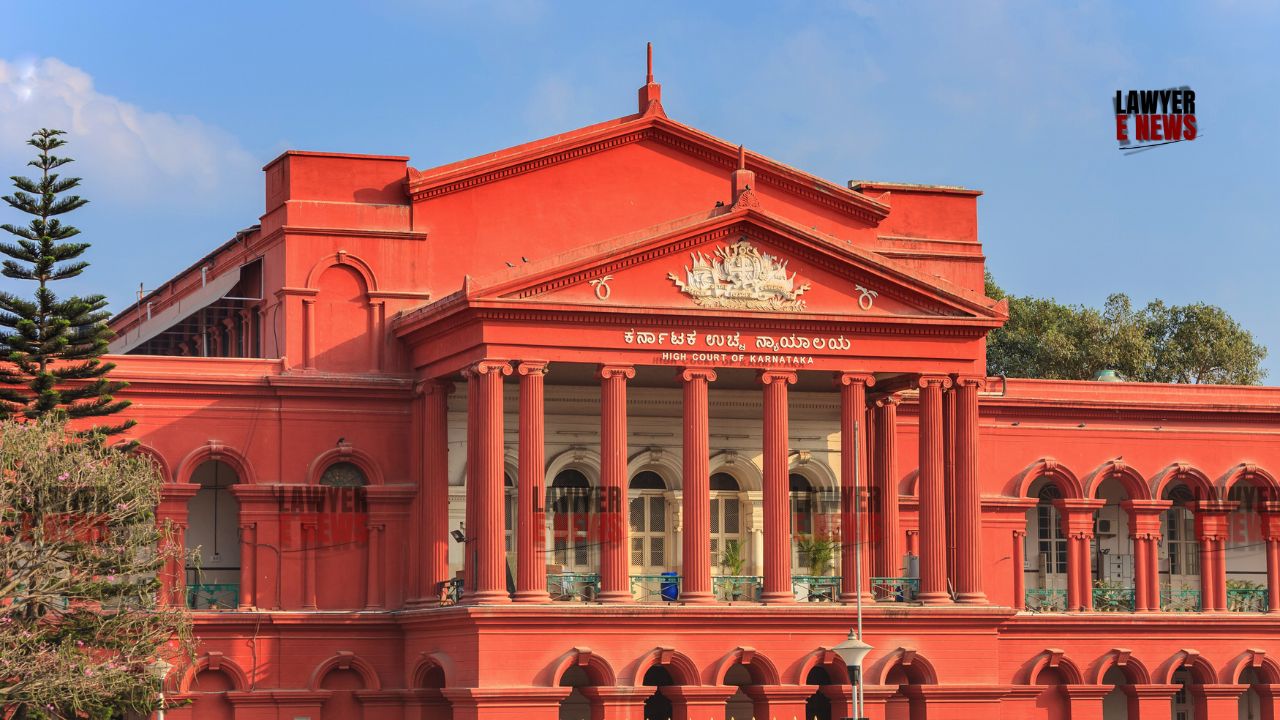-
by Admin
15 February 2026 5:01 PM



Karnataka High Court, in the case of Mr. Abin Thomas Sebastian v. Rajiv Gandhi University of Health Sciences & Others, ruled against the petitioners' plea for awarding grace marks in their MBBS examinations or revaluation of their answer scripts. Justice S. Sunil Dutt Yadav upheld the 2023 UGMEB Guidelines, which eliminated the provision of grace marks, rejecting the applicability of older regulations that permitted such marks. The ruling sets an important precedent regarding the evolution of examination standards in professional education.
The case involved multiple petitions filed by MBBS students from Rajiv Gandhi University of Health Sciences (RGUHS), seeking the award of grace marks in their January 2024 examinations. The petitioners relied on the Graduate Medical Education (Amendment) Regulations, 2019, which allowed up to five grace marks for failing students. The primary issue was the conflict between the 2019 regulations and the newly enforced 2023 UGMEB Guidelines, which abolished grace marks.
The petitioners also sought to challenge the University's evaluation policies, specifically the Ordinance dated 05.09.2022, governing revaluation procedures, claiming the need for a more favorable re-evaluation method.
Applicability of 2023 UGMEB Guidelines: The key legal question was whether the 2023 UGMEB Guidelines, which eliminated grace marks, could be applied retroactively to students who were admitted under the 2019 regulations. Petitioners argued that the 2019 rules should apply to their examinations, particularly as the provision of grace marks was included.
The Court, however, held that educational standards are dynamic and can evolve over time. The 2023 guidelines came into effect on August 1, 2023, and were applicable to all examinations held thereafter, including those in January 2024. As the court noted:
"The standards of evaluation prevailing on the date of the examination are the standards that apply, regardless of when students were admitted."
The Court emphasized that students have no vested right to maintain evaluation standards at the time of their admission, especially when academic policies are subject to continuous improvement.
Challenge to University’s Ordinance on Revaluation: Petitioners also challenged the validity of the RGUHS Ordinance of 05.09.2022, which followed a dual-evaluation system, arguing that they should be entitled to further revaluation of their answer scripts. However, the Court upheld the validity of the Ordinance, citing prior decisions that established its legality.
"The evaluation process falls within the domain of academic policy, and courts should refrain from interfering in such matters," observed the Court.
The Ordinance was deemed a legitimate exercise of the University’s authority, ensuring standardization and fairness in evaluations.
The Court ruled that the 2019 regulations were no longer in force after the 2023 UGMEB Guidelines came into effect, which explicitly prohibited grace marks.
"The provision of grace marks under the 2019 Regulations must give way to the new standards," the Court asserted, confirming that the 2023 guidelines prevail for all exams conducted post-August 2023.
The Court dismissed the petitioners' request for further revaluation, affirming that the procedures laid out in the RGUHS Ordinance are valid and final. It reiterated that the judiciary cannot dictate academic policies, especially when the University has established a clear system for evaluations.
The Karnataka High Court dismissed the petitions and upheld the 2023 UGMEB Guidelines, denying the award of grace marks and rejecting challenges to the University's revaluation policy. The ruling underscores that changes in educational standards are both necessary and binding, regardless of the time of student admission. Academic bodies retain the discretion to modify evaluation standards to ensure the quality and integrity of medical education.
Date of Decision: September 19, 2024
Mr. Abin Thomas Sebastian v. Rajiv Gandhi University of Health Sciences & Others
